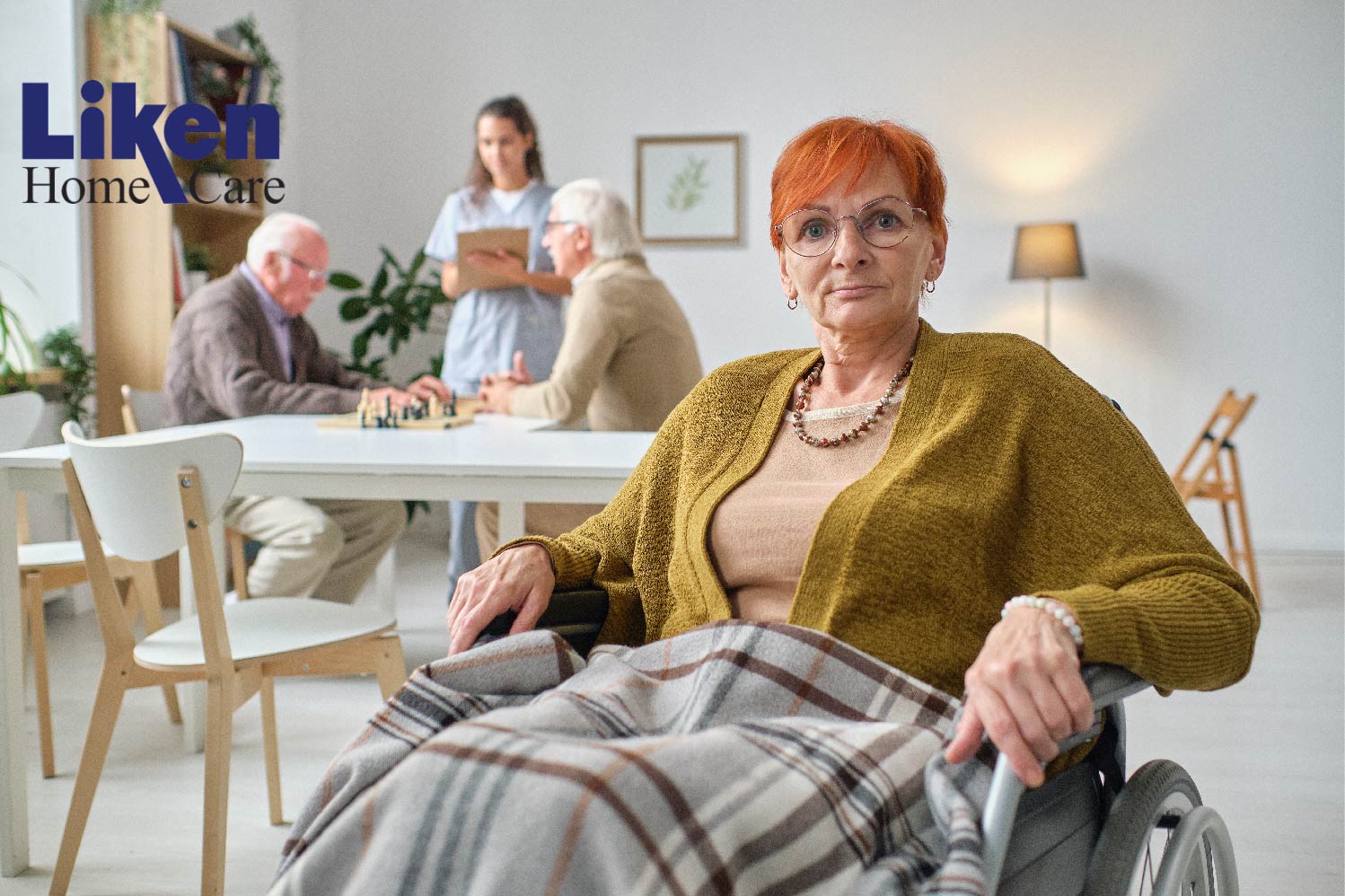The Importance of Mental Health in Seniors

As we age, our physical health isn’t the only thing that declines. Mental health is a significant issue for seniors, and one that is often overlooked.
Seniors face a variety of mental health issues, from anxiety and depression to dementia. And, because of the stigma that still exists around mental illness, many seniors don’t seek help.There are a number of ways to support seniors with mental health issues, from home care to professional help. In this blog post, we’ll explore some of the key mental health issues for seniors and how to get help.
Anxiety and depression can be caused by a number of things, including physical health problems, the loss of a loved one, social isolation, and retirement.
There are a number of ways to help seniors with anxiety and depression, from home care to professional help. Liken Home Care helps with day-to-day tasks, providing companionship, and making sure the home is safe and comfortable. Professional help can involve therapy, medication, and other treatments.
Warning Signs of Poor Mental Health in Elders
If you are worried about a senior in your life, there are a few key signs to look for:
- withdrawn or isolation from friends and activities
- changes in eating or sleeping habits
- sudden weight loss or gain
- problems concentrating
- unexplained physical symptoms
- excessive worry or fearfulness
If you notice any of these signs, it's important to reach out for help. There are many resources available to seniors and their families, so don't hesitate to ask for assistance. With the right support, seniors can maintain their mental health and live happy, healthy lives.
5 Tips for Improving Mental Health Among Older Adults
There are steps that we can take to improve our mental health as we age. Here are five tips for improving mental health among older adults:
- Stay active and engaged. Exercise is not only good for our physical health, but it can also help to improve mental well-being. Social activities and hobbies can also help to keep our minds active and engaged, and can help to reduce feelings of isolation and loneliness.
- eat a healthy diet. Eating a balanced diet is important for physical health, but it can also help to improve mental health. Research has shown that foods rich in omega-3 fatty acids, such as oily fish, can help to boost mental well-being.
- Get enough sleep. As we get older, we often need less sleep than we did when we were younger. However, it is still important to get enough restful sleep in order to maintain mental health.
- See your doctor regularly. Older adults are at an increased risk for chronic health problems, such as heart disease and diabetes. These conditions can lead to an increased risk for mental health problems such as depression and anxiety. Seeing your doctor regularly can help to identify these problems early and get treatment started quickly.
- Talk about your feelings. It’s normal to feel sad or angry at times, but it’s important to talk about these feelings with someone who can understand and support you. Talking about our mental health can be difficult, but there are many resources available to help older adults get the support they need.
What To Do
If you are concerned about your mental health, or the mental health of an older adult in your life, talk to your doctor or another healthcare provider about what you can do to improve mental wellbeing.
Some home care services can also provide mental health support. If you are considering home care for a senior, be sure to ask about the mental health services that are available. Liken Home Care can offer valuable assistance and support to seniors who are struggling with mental health issues.
